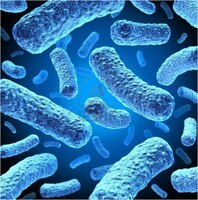69053 Sigma-AldrichBLR(DE3) Competent Cells - Novagen
BLR is a recA derivative of BL21 that improves plasmid monomer yields and may help stabilize target plasmids containing repetitive sequences.
More>> BLR is a recA derivative of BL21 that improves plasmid monomer yields and may help stabilize target plasmids containing repetitive sequences. Less<<Recommended Products
Overview
| Replacement Information |
|---|
Products
| Catalogue Number | Packaging | Qty/Pack | |
|---|---|---|---|
| 69053-3 | Plastic ampoule | 0.4 ml | |
| 69053-4 | Glass bottle | 1 ml |
| Description | |
|---|---|
| Overview | BLR is a recA- derivative of BL21 that improves plasmid monomer yields and may help stabilize target plasmids containing repetitive sequences or whose products may cause the loss of the DE3 prophage (1, 2). DE3 indicates that the host is a lysogen of λDE3, and therefore carries a chromosomal copy of the T7 RNA polymerase gene under control of the lacUV5 promoter. Such strains are suitable for production of protein from target genes cloned in pET vectors by induction with IPTG. |
| Genotype: F- ompT hsdSB(rB- mB-) gal lac ile dcm Δ(srl-recA) This product contains genetically modified organisms (GMO). Within the EU GMOs are regulated by Directives 2001/18/EC and 2009/41/EC of the European Parliament and of the Council and their national implementation in the member States respectively. This legislation obliges MilliporeSigma to request certain information about you and the establishment where the GMOs are being handled. Click here for Enduser Declaration (EUD) Form. This product is sold for internal research use only. Any commercial use of this product, its components, and/or any derivatives thereof (including but not limited to proteins produced using the product or its components) (together and hereinafter the 'EMD Product') requires signature of a written commercial use agreement with EMD Millipore Corporation or its successor-in-interest. Commercial use shall include but not be limited to: (1) use of the EMD Product to manufacture products for sale to third parties; (2) use of the EMD Product to provide services, information, or data to third parties in exchange for consideration; (3) use of the EMD Product for therapeutic, diagnostic or prophylactic purposes (including as part of a device, chip, assay or other product); or (4) resale of the EMD Product, whether or not such EMD Product is resold for research use. Nothing contained herein shall be deemed to represent or warrant that additional third party rights are not required for use of the EMD Product. Please direct any questions on these use restrictions to: licensing@milliporesigma.com. |
|
| Catalogue Number | 69053 |
| Brand Family | Novagen® |
| References | |
|---|---|
| References | 1. A. Roca (U. of Wisconsin), personal communication. 2. Studier, F. W. (1991) J. Mol. Biol. 219, 37-44. |
| Product Information | |||
|---|---|---|---|
| 0.4 ml | 1 ml | Component | |
| • | 2 × 0.2 ml | 5 × 0.2 ml | BLR(DE3) Competent Cells |
| • | 2 × 2 ml | 4 × 2 ml | SOC Medium |
| • | 2 ng | 2 ng | Test Plasmid |
| Guaranteed efficiency | Guaranteed efficiency: > 2 x 10⁶ cfu/μg | ||
| Quality Level | MQ100 | ||
| Applications |
|---|
| Biological Information |
|---|
| Physicochemical Information |
|---|
| Dimensions |
|---|
| Materials Information |
|---|
| Toxicological Information |
|---|
| Safety Information according to GHS |
|---|
| Safety Information |
|---|
| Product Usage Statements |
|---|
| Storage and Shipping Information | |
|---|---|
| Ship Code | Dry Ice Only |
| Toxicity | Multiple Toxicity Values, refer to MSDS |
| Storage | ≤ -70°C |
| Avoid freeze/thaw | Avoid freeze/thaw |
| Do not freeze | Ok to freeze |
| Packaging Information |
|---|
| Transport Information |
|---|
| Supplemental Information |
|---|
| Specifications |
|---|
| Global Trade Item Number | |
|---|---|
| Catalogue Number | GTIN |
| 69053-3 | 04055977259834 |
| 69053-4 | 04055977259841 |
Documentation
BLR(DE3) Competent Cells - Novagen SDS
| Title |
|---|
BLR(DE3) Competent Cells - Novagen Certificates of Analysis
| Title | Lot Number |
|---|---|
| 69053 |
References
| Reference overview |
|---|
| 1. A. Roca (U. of Wisconsin), personal communication. 2. Studier, F. W. (1991) J. Mol. Biol. 219, 37-44. |
Brochure
| Title |
|---|
| Competent Cell Brochure |
Citations
| Title | |
|---|---|
|
|
User Protocols
| Title |
|---|
| TB009 Competent Cells |
| TB053 Academic and Non-profit Laboratory Assurance Letter |











